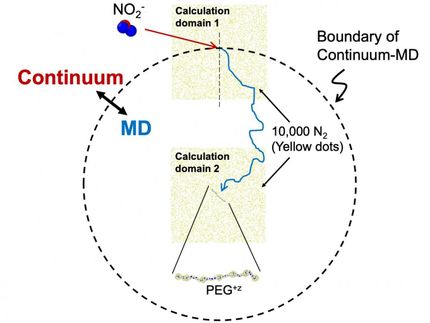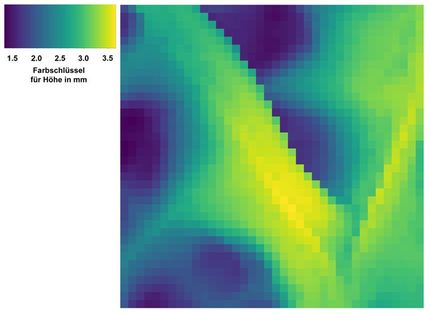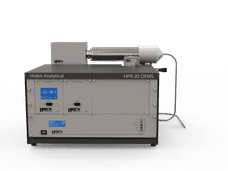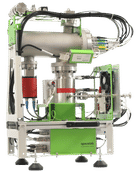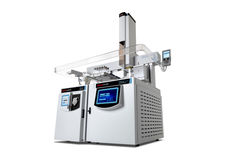Analytical trick accelerates protein studies
Advertisement
Researchers at the University of Wisconsin-Madison have found a new way to accelerate a workhorse instrument that identifies proteins. The high-speed technique could help diagnose cancer sooner and point to new drugs for treating a wide range of conditions.
Proteins are not only numerous — humans have more than a 100,000 varieties — but each one has a complex structure that determines its exact function in the biological realm. Just as tissue from cats and kangaroos can be distinguished by studying the individual "letters" of their genetic codes, protein A can be distinguished from protein B by looking at the amino-acid subunits that compose all proteins.
The fastest way to count and identify proteins is to use a mass spectrometer. "Mass spec is an essential part of modern biology, and most people use it to look at variations in proteins," says Joshua Coon, a professor of chemistry and biomolecular chemistry.
Because mass spectrometers are expensive, and proteins are both numerous and ubiquitous, chemists have recently learned to double up their samples so they can, for example, compare normal tissue to diseased tissue in a single run.
Knowing how the proteins change when good tissue goes bad suggests what has gone wrong.
Now, Coon has doubled-down on the doubling-up process with a technique that has the potential to run as many as 20 samples at once. The new process, described in the journal Nature Methods, has already gone to work, says Alexander Hebert, a graduate student who was first author on the new publication.
"Working with John Denu at the Wisconsin Institute for Discovery, we are looking at mice that lived with or without caloric restriction," says Hebert. Caloric restriction is known to increase lifespan in many animals, and scientists are eager to unravel the biochemical pathways that explain this life extension. "Some of these mice have lost a certain gene related to metabolism, so we are comparing four types of tissue all at once. We can look at the brain, liver or heart, and ask, how does the abundance of proteins vary?"
Already, Coon and Hebert have performed six simultaneous analyses using the new technique; but it could actually do batches of 20, Coon says.
Key to the original doubling-up process was inserting a "tag" into the amino acids that gives the proteins a slightly different mass. The tags are isotopes — chemically identical atoms that have different masses.
To prepare two samples, one would receive an amino acid containing common isotopes, and the other special, heavier isotopes. The result — proteins that are chemically identical but have different masses — can easily be identified in a mass spectrometer.
The new journal report by Coon and Hebert describes a way to use amino acids built from a broader range of isotopes that would be expected to have identical mass, but do not because some of their mass has been converted to energy to hold the atomic nuclei together. Without this energy, the positively charged proteins would repel each other and the atomic nucleus would be destroyed. The tiny loss of mass due to this conversion to binding energy can be detected in the new, ultra-precise mass spectrometers that are now installed in several labs on campus.
Other news from the department science
These products might interest you
Most read news
More news from our other portals
See the theme worlds for related content
Topic World Mass Spectrometry
Mass spectrometry enables us to detect and identify molecules and reveal their structure. Whether in chemistry, biochemistry or forensics - mass spectrometry opens up unexpected insights into the composition of our world. Immerse yourself in the fascinating world of mass spectrometry!

Topic World Mass Spectrometry
Mass spectrometry enables us to detect and identify molecules and reveal their structure. Whether in chemistry, biochemistry or forensics - mass spectrometry opens up unexpected insights into the composition of our world. Immerse yourself in the fascinating world of mass spectrometry!



